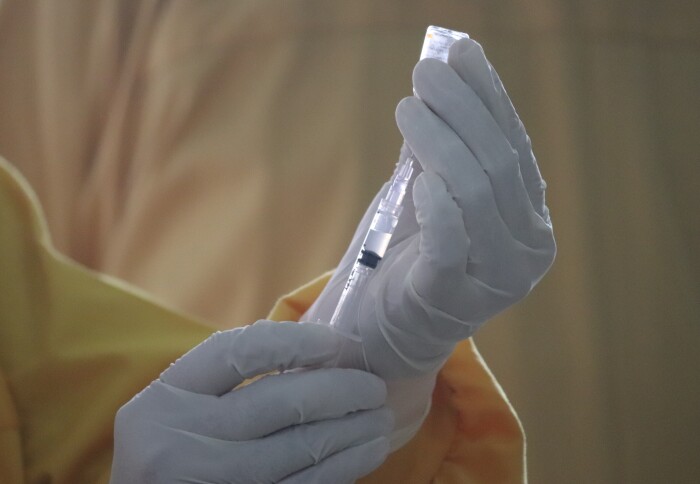Immunosuppressing medicine can be interrupted to boost COVID-19 vaccine response
by Meesha Patel

Interrupting treatment of immunosuppressing medicines for two weeks can significantly improve antibody immunity provided by COVID-19 booster vaccines.
A major study has shown that people with inflammatory conditions are able to improve the antibody response from a COVID-19 booster vaccination by interrupting their treatment of methotrexate for two weeks immediately after having the vaccine.
The findings of the study show that the antibody response to the vaccine was double at four weeks and was one and a half times greater at 26 weeks, when compared to those who continued with their treatment as usual. This improved antibody response was found to last for six months.
These findings will be useful for national immunisation advisory committees, and other specialist societies formulating recommendations on the timing of vaccination in those treated with or starting medicines that turn down the immune system.
"Further important research is in progress to understand better how this simple intervention impacts on vaccine induced antibody (B cell) and cellular (T cell) immune memory and cross-protection against current and emerging variants of concern." Professor Rosemary Boyton Department of Infectious Disease
Co-Lead Investigator Professor Rosemary Boyton, from Imperial’s Department of Infectious Disease, said: “This study shows that a simple intervention like interrupting methotrexate for two weeks immediately after the COVID-19 booster vaccine dose improved subsequent antibody responses and that this effect was sustained at 26 weeks.
"Further important research is in progress to understand better how this simple intervention impacts on vaccine induced antibody (B cell) and cellular (T cell) immune memory and cross-protection against current and emerging variants of concern.”
Methotrexate is an immunosuppressant medication. It slows down the body’s immune system to help reduce swelling and is prescribed to manage conditions such as rheumatoid arthritis, psoriasis and Crohn’s disease.
While methotrexate is effective at controlling these conditions and has emerged as first line therapy for many illnesses, it reduces the body’s ability to fight infections and the ability to generate a strong response to flu and pneumonia vaccines, including those against COVID-19.
Increased antibody response
The Vaccine Response On Off Methotrexate (VROOM) trial recruited 383 participants that were taking methotrexate and had clinically stable rheumatoid arthritis or psoriasis. They found that in the people who stopped using immunosuppressing medication for two weeks, the level of antibody response was one and a half times greater at 6 months compared to the group who continued their treatment.
Patients who interrupted treatment reported experiencing more flare-ups of their inflammatory conditions in the next few weeks, but most flares were self-managed, and most didn’t need help from a healthcare provider.
"COVID-19 has not gone away, and with the emergence of new variants, and vaccine hesitancy among patients, it is important to optimise durable protection in people who are susceptible to COVID-19." University of Nottingham and Nottingham University Hospitals NHS Trust
Chief Investigator, Professor Abhishek at the University of Nottingham and Honorary Consultant Rheumatologist at Nottingham University Hospitals NHS Trust, said: “COVID-19 has not gone away, and with the emergence of new variants, and vaccine hesitancy among patients, it is important to optimise durable protection in people who are susceptible to COVID-19. Evidence from our trial will help patients and clinicians make informed choices about the risks and benefits of interrupting methotrexate treatment around the time of vaccination against COVID-19.”
The study was carried out in collaboration with colleagues from the University of Manchester, Imperial College London, the University of Oxford, Queen Mary University London, UK Health Security Agency (formerly Public Health England) and participating NHS hospitals. The study was managed by the Oxford Clinical Trials Research Unit (OCTRU).
The trial is funded by a National Institute for Health and Care Research (NIHR) and Medical Research Council (MRC) partnership.
This article has been adapted from a press release from the University of Nottingham.
Article text (excluding photos or graphics) © Imperial College London.
Photos and graphics subject to third party copyright used with permission or © Imperial College London.
Reporter
Meesha Patel
Faculty of Medicine Centre